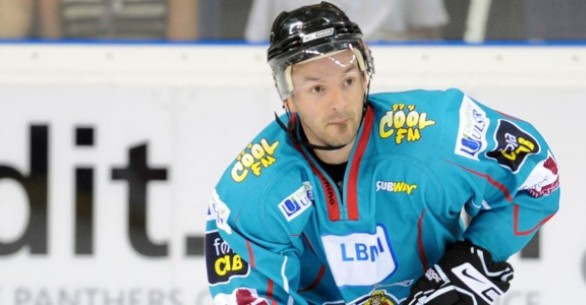Where Is the British Development Ladder?
Colin Shields, the Belfast Giants and Team GB forward, is not the first to question the development ladder in British hockey – but he may be the most high profile to do so publicly.
It’s an issue which has been debated numerous times before; but sadly seems far from a resolution.
It’s a simple notion that the EPL should live up to its (alleged) name and act as a development league – be the bridge for young players to reach the top of the British game. I say it extends to the NIHL as well; but the point remains the same. Where is the development ladder for young British players?
For those that missed Shields tweet yesterday:
Again, the theory is simple enough I feel, and it is an ideology I fully support – and have done for some time. But the disjointed nature of the sport in the UK ensures it remains little more than a ‘vision’, shared among those hopeful that one day British ice hockey will be more than the creaking shambles it so often feels like currently.
The EIHL is the top tier in the UK. Fighting it is akin to claiming Frank Bruno was a better boxer than Muhammed Ali. But then, that is half the problem.
I’ve talked about hockey snobbery before, where so many turn their nose up at other leagues, but arrogance is just as much of a problem – where ‘bigger clubs’ too often assume they should get their way because they are bigger.
It simply creates further divisions and continues the infighting which dogs the sport.
It’s not as if there are not already enough divisions to overcome – after all this is the country which sees fit to run a minority sport with two governing bodies, and leagues being guided by the hand of the teams themselves.
Throw in a healthy mix of self protection and the bigger picture is frequently lost.
To a point, I understand why some clubs would be reluctant to get involved in a development relationship similar to that which NHL and AHL (and ECHL) clubs share. An affiliation system. Because, for all parties, what exactly is in it for them?
That is partial a rhetorical question – one would hope the long term benefits would be apparent. But the short term is the stumbling block; because that’s another of the issues that needs overcoming, short term thinking is the order of the day.
There are on and off ice benefits for NHL, AHL and ECHL clubs in their relationships – financial ones, development ones. Similar benefits are unlikely to translate to the UK when player contracts contain two week notice periods and are rarely worth the paper they are written on, and thus prospects can be developed by ‘someone else’ and then signed as free agents almost at will.
Lets not even start on the laughable idea of any sort of affiliation, or transfer/development, fees. Teams exist for themselves (some better than others) – competing against everyone else for players signatures and for your money.
Perhaps the most damning indication of just how badly the development ladder in the UK is broken lies with one club – or more, in one city.
Sheffield has teams at every level from under 10 to Elite League. It should be the shining beacon of development – a city where a young player can easily move from junior hockey to the top level of the sport in Great Britain, all under one roof.
Yet, too frequently there have been clashes between parties in the Steel City.
That said, other cities and towns with junior hockey and multiple senior clubs suffer the same problems, so this isn’t something unique to Yorkshire.
The whole thing becomes that little bit more frustrating when things appear to be done well though. Simply because it shows it can be done. That it is not impossible for clubs to work together for the benefit of all – whether it be within one rink, or when there is a convenient geographical proximity to one another.
Perhaps one day British hockey will put its petty squabbles aside – until then, we’ll see more bridges burnt than built.
Posted on January 16, 2014, in British Hockey, Hockey and tagged British Hockey, Colin Shields, Development. Bookmark the permalink. 1 Comment.





Pingback: One Puck Short Talks to Craig Peacock | One Puck Short